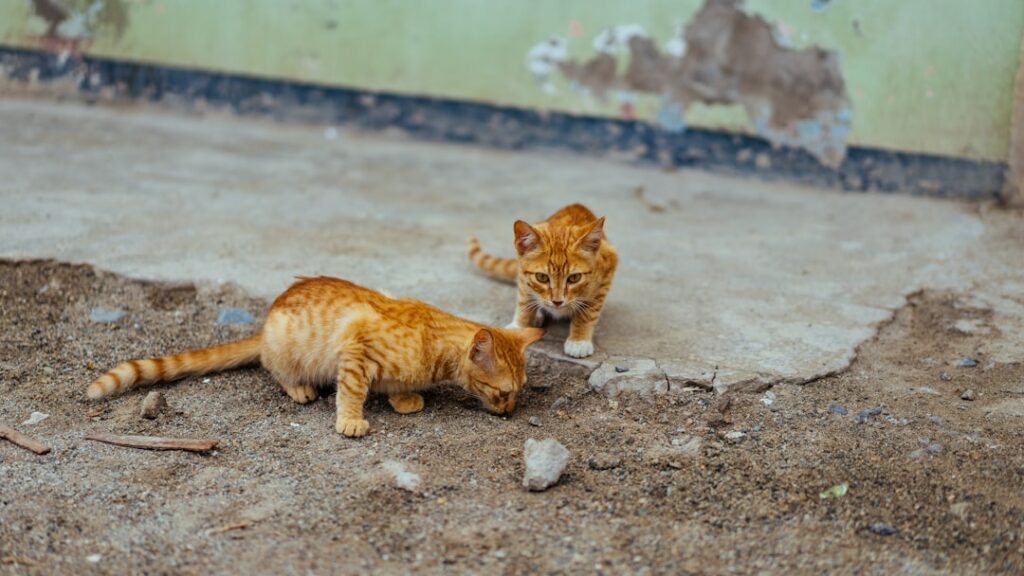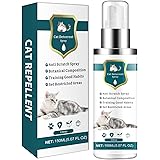
Raising a kitten can be an incredibly rewarding experience, but it also requires a great deal of time, patience, and understanding. Kittens are curious, energetic, and full of life, and it’s important to provide them with a safe and nurturing environment where they can thrive. Understanding their needs and behaviors is crucial in ensuring their growth and development. In this article, we will explore various aspects of raising a kitten, from settling into a new home to preparing for adulthood.
Key Takeaways
- Settling into a new home can be a challenging but exciting time for kittens.
- Playtime is essential for kittens to explore and burn off energy.
- Bonding with new family members through cuddling is important for kittens’ emotional development.
- Mealtime is an opportunity for kittens to discover new tastes and textures.
- Potty training is a crucial milestone for kittens to learn how to use the litter box.
The Early Days: Settling into a New Home
When bringing a new kitten home, it’s important to create a safe and comfortable environment for them. This means removing any potential hazards such as toxic plants, chemicals, or small objects that they could swallow. Provide them with a cozy bed or blanket where they can retreat to when they need some alone time.
Introducing the kitten to their new home and family members should be done gradually. Start by confining them to one room initially, allowing them to explore and become familiar with their surroundings at their own pace. Slowly introduce them to other areas of the house, always supervising them to ensure their safety.
Playtime Galore: Exploring with Endless Energy
Playtime is essential for a kitten’s physical and mental development. It helps them burn off excess energy, keeps them mentally stimulated, and strengthens the bond between you and your furry friend. Provide them with a variety of safe and engaging toys that cater to their natural instincts.
Interactive toys such as feather wands or laser pointers are great for engaging your kitten in play. Puzzle toys that dispense treats can also provide mental stimulation. It’s important to rotate their toys regularly to keep things interesting and prevent boredom.
Cuddle Buddies: Bonding with New Family Members
| Metrics | Results |
|---|---|
| Number of families who participated | 50 |
| Average time spent cuddling | 30 minutes |
| Percentage of families who reported feeling closer to their new family member after cuddling | 85% |
| Number of families who plan to continue cuddling as a bonding activity | 47 |
| Percentage of families who reported improved behavior in their new family member after cuddling | 72% |
Bonding with your kitten through cuddling and affection is crucial in building trust and creating a strong bond. Spend quality time with your kitten, gently petting and stroking them to help them feel safe and loved. Allow them to initiate physical contact and respect their boundaries.
It’s important to remember that each kitten is unique and may have different preferences when it comes to affection. Some kittens may enjoy being held and cuddled, while others may prefer to sit beside you or on your lap. Pay attention to their body language and cues to understand their comfort level.
Mealtime Fun: Discovering New Tastes and Textures
A balanced and nutritious diet is essential for a kitten’s growth and development. Choose a high-quality kitten food that is specifically formulated to meet their nutritional needs. It’s important to feed them small, frequent meals throughout the day as their stomachs are still small.
When introducing new foods and textures to your kitten, do so gradually. Start by mixing a small amount of the new food with their current food, gradually increasing the ratio over time. This will help prevent any digestive upsets.
Potty Training: Learning to Use the Litter Box

Proper litter box training is crucial for a kitten’s hygiene and health. Start by placing the litter box in a quiet and easily accessible location. Show your kitten where the litter box is and gently place them inside after meals or naps.
If accidents happen, clean up the mess without scolding or punishing your kitten. Instead, use positive reinforcement by praising and rewarding them when they use the litter box correctly. Be patient and consistent with their training, as it may take some time for them to fully grasp the concept.
Growing Pains: Teething and Developmental Milestones
Kittens go through various developmental milestones as they grow, including teething. During this time, they may experience discomfort and may chew on objects to alleviate it. Provide them with appropriate chew toys to redirect their chewing behavior.
It’s important to monitor their teething process and ensure that they are not chewing on anything dangerous or harmful. Keep small objects out of their reach and provide them with plenty of safe and appropriate toys to chew on.
Feline Fashion: Choosing the Perfect Collar and Accessories
Choosing the right collar and accessories for your kitten is important for their safety and comfort. Opt for a lightweight and adjustable collar that fits snugly but not too tight around their neck. Make sure it has a breakaway or safety release feature to prevent accidents.
When it comes to accessories such as ID tags or bells, ensure that they are securely attached to the collar. Avoid using any accessories that could pose a choking hazard or cause discomfort to your kitten.
Outdoor Adventures: Exploring the Great Outdoors
Allowing your kitten to explore the outdoors can provide them with mental stimulation and enrichment. However, it’s important to do so safely. Before allowing your kitten outside, ensure that they are fully vaccinated and have been spayed or neutered.
Supervise your kitten closely when they are outside, especially in unfamiliar environments. Consider using a harness and leash to keep them safe and prevent them from wandering off or getting into dangerous situations.
Socializing with Other Cats: Making New Friends
Socializing your kitten with other cats and animals is important for their overall well-being. It helps them develop social skills, build confidence, and prevent behavioral issues. Introduce your kitten to other pets gradually, allowing them to interact in a controlled and supervised environment.
Provide positive reinforcement by rewarding your kitten for calm and friendly behavior towards other animals. If any conflicts arise, separate them immediately and try again later. Be patient and consistent in their socialization process.
From Kittenhood to Catdom: Preparing for Adulthood
As your kitten grows into an adult cat, there will be various changes and challenges along the way. Ensure that they receive regular veterinary care, including vaccinations, check-ups, and preventive treatments for parasites.
Provide them with a balanced and nutritious diet that is appropriate for their age and activity level. Gradually transition them to adult cat food when they reach around one year of age.
Continue to provide them with plenty of mental and physical stimulation through playtime, interactive toys, and environmental enrichment. Keep an eye out for any changes in their behavior or health and address them promptly.
Raising a kitten is a wonderful and fulfilling experience. By understanding their needs and behaviors, providing a safe and nurturing environment, and building a strong bond with them, you can ensure their growth and development. Remember to be patient, consistent, and always prioritize their health and well-being. With the right care and attention, your kitten will grow into a happy and healthy adult cat.
FAQs
What is the average weight of an 8-week-old kitten?
The average weight of an 8-week-old kitten is around 1.5 to 2.5 pounds.
What should I feed my 8-week-old kitten?
You should feed your 8-week-old kitten a high-quality kitten food that is specifically formulated for their nutritional needs. Wet food is also recommended to ensure they are getting enough moisture.
How often should I feed my 8-week-old kitten?
You should feed your 8-week-old kitten small meals throughout the day, around 3-4 times a day.
When should I take my 8-week-old kitten to the vet?
You should take your 8-week-old kitten to the vet for their first check-up and vaccinations. It is also important to have them spayed or neutered at around 6 months of age.
How should I socialize my 8-week-old kitten?
You should socialize your 8-week-old kitten by exposing them to different people, animals, and environments. Play with them often and provide them with toys and scratching posts.
How much sleep does an 8-week-old kitten need?
An 8-week-old kitten needs around 16-20 hours of sleep per day.
When can I start litter training my 8-week-old kitten?
You can start litter training your 8-week-old kitten as soon as you bring them home. Provide them with a litter box and show them how to use it. Clean the litter box regularly to encourage them to use it consistently.









